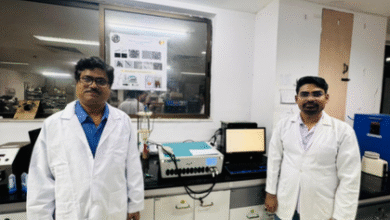Weather forecasts more accurate than ever: Technological advancements change the game

Technology: In recent years, the accuracy of weather forecasts has improved significantly thanks to cutting-edge technology and innovative methodologies. The world of meteorology is undergoing a revolution, driven by the integration of artificial intelligence, machine learning, and advanced data modeling. Artificial intelligence and machine learning are changing the way meteorologists predict weather patterns. By analyzing vast amounts of meteorological data ranging from satellite imagery to historical weather patterns, these techniques can create complex models that predict weather events with unprecedented accuracy.
AI systems can learn from past inaccuracies, constantly improving the reliability of their predictions. High-resolution weather models are a game-changer in the pursuit of accuracy. Computational advancements allow for more granular forecasts that capture subtle atmospheric changes. This results in highly detailed forecasts, which are crucial for businesses and governments that need to make informed decisions based on weather conditions. The fusion of Big Data and IoT (Internet of Things) is another factor boosting forecast accuracy. Weather stations integrated with IoT devices in different geographic areas send real-time data, which combined with satellite and radar information provides meteorologists with a holistic view of ongoing weather events. This interconnected mesh of data sources helps identify hyper-local weather conditions, which can significantly improve short-term forecasts.
These technological advancements herald a new era in weather forecasting. As technology continues to develop, the future promises even greater accuracy, supporting critical sectors such as agriculture, aviation, and disaster management in mitigating weather-related risks. The accuracy of tomorrow’s weather forecasts may indeed be limited only by the rapid pace of technological development.





